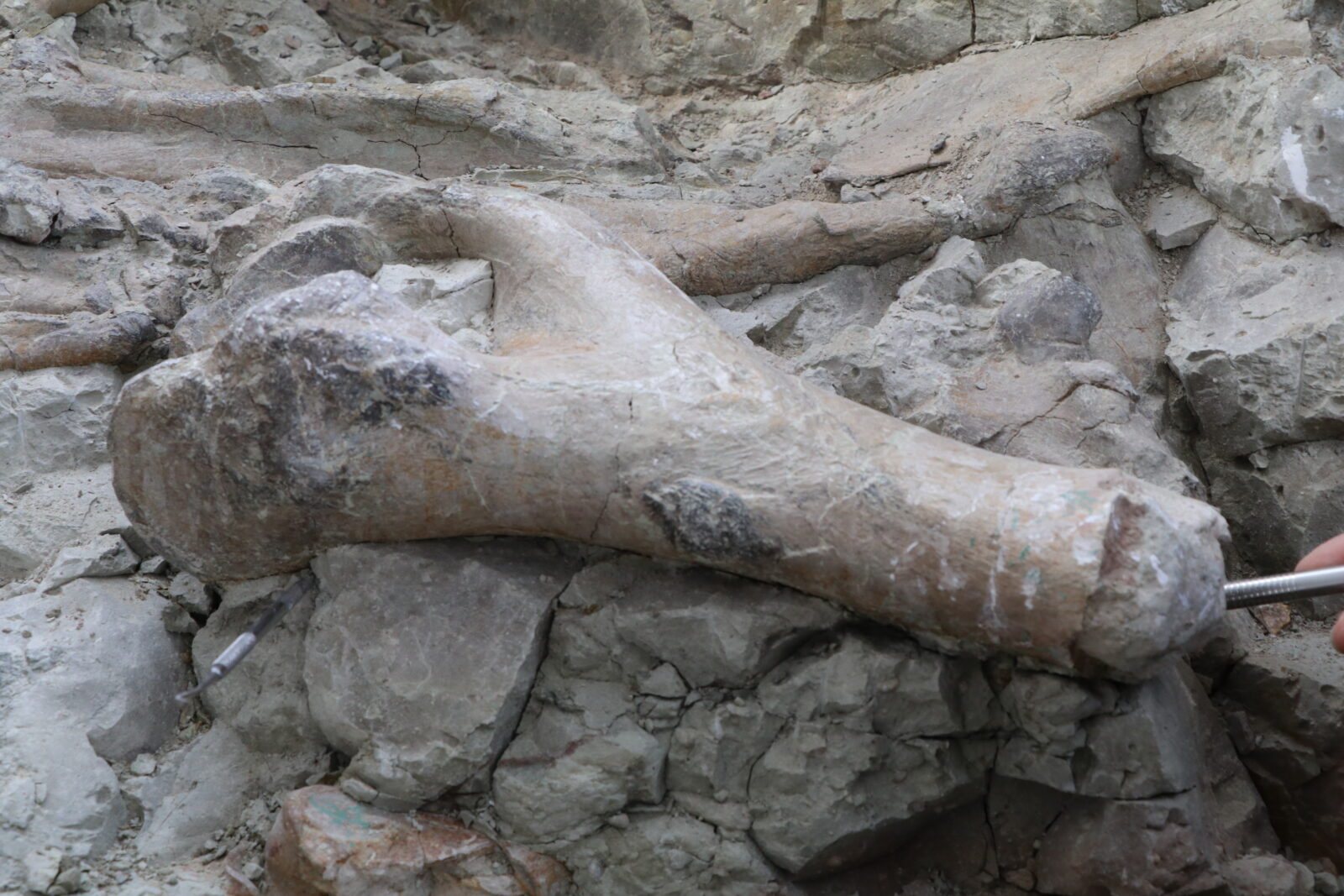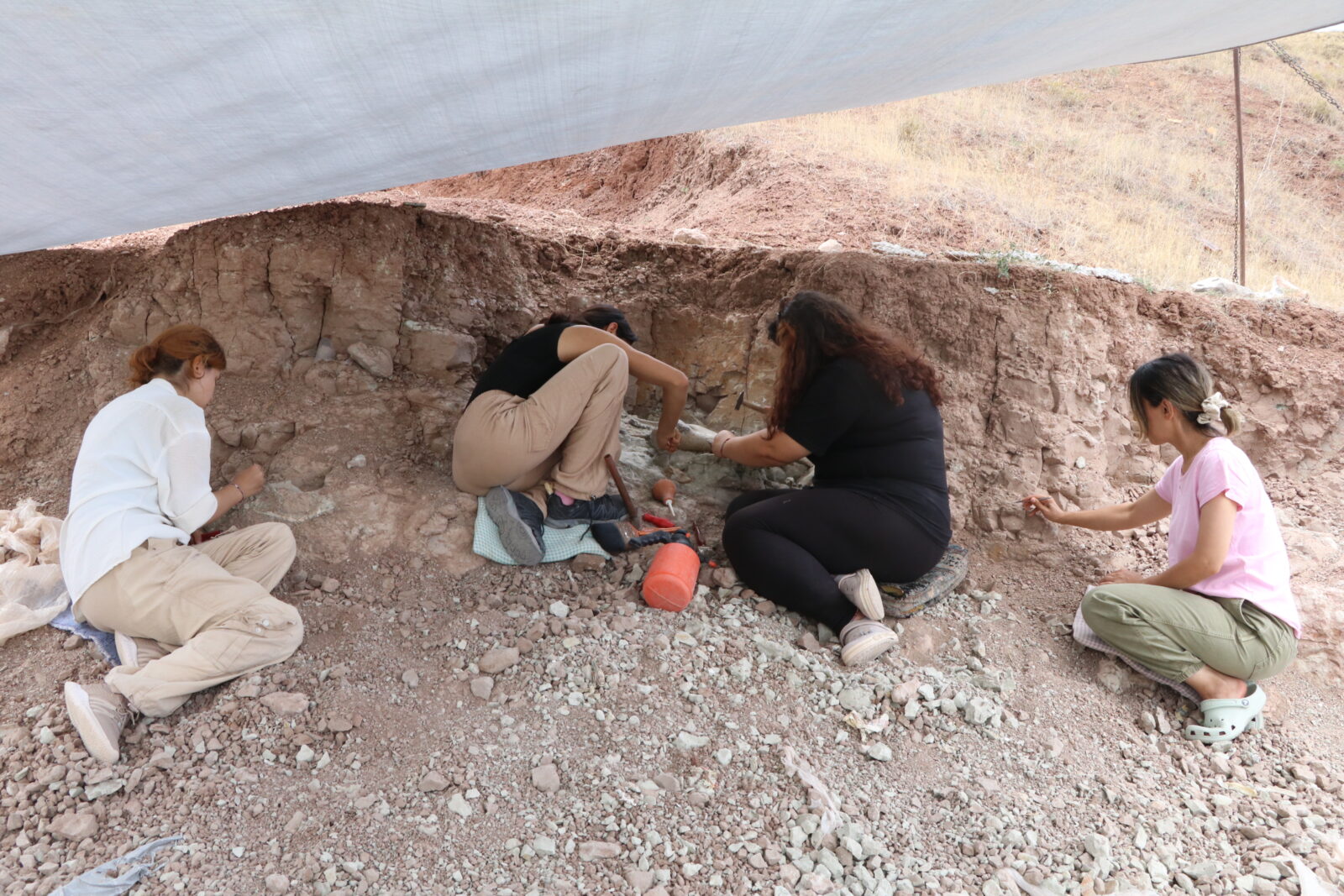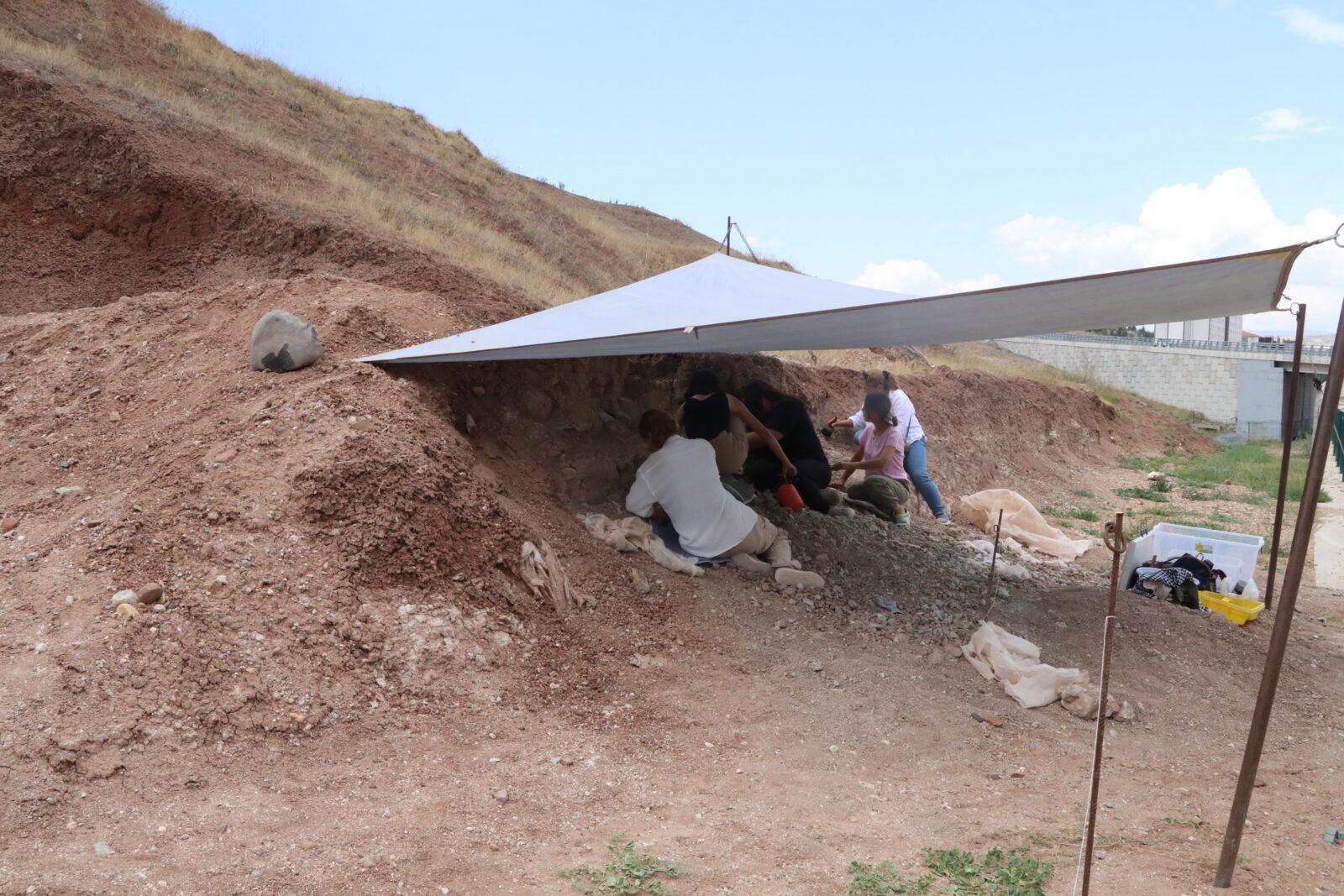
Scientists have uncovered prehistoric elephant bones dating back approximately 9 million years in Cankiri in a ground-breaking discovery.
The excavation, led by professor Ayla Sevim Erol from Ankara University, has yielded remarkable fossils that shed light on ancient species of elephants.
The excavation site, known as the Corakyerler Vertebrate Fossil Locality along the Cankiri-Yaprakli road, has been under investigation for 27 years.
This year, the team discovered bones belonging to early ancestors of elephants.
Professor Erol reported team has uncovered a variety of fossils, including the upper arm and foot bones of an ancient elephant.

"We have discovered an upper arm bone of a large elephant species. This year, we found many elephant skeletons," Profesor Erol explained.
Corakyerler is home to two different prehistoric elephant species: the larger 'Konobelodon' and the smaller 'Choerolophodon.'”

The team has identified 43 different species at the site, including early horses, giraffes, saber-toothed cats, otters, porcupines, bears and wild boars.
These findings include over 4,000 fossil specimens, with many still unnumbered.

Originally, the site was dated to 8 million years ago, but recent discoveries suggest some fossils may be up to 9 million years old, based on their primitive characteristics.
Professor Erol noted that further analysis and comparisons of micro and macro vertebrates have refined the dating of the fossils.
Looking ahead, professor Erol announced that a Turkish specialist from Spain will conduct uranium-potassium dating next year to provide a more detailed chronology of the Corakyerler site.